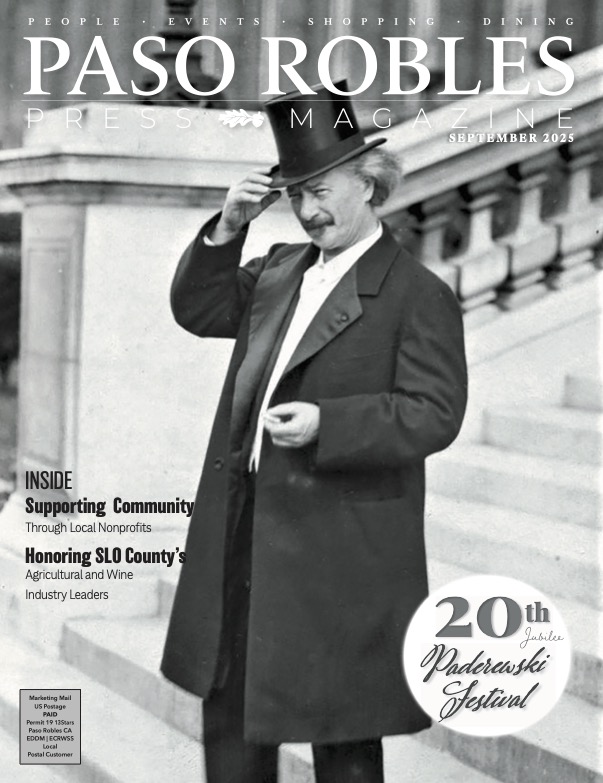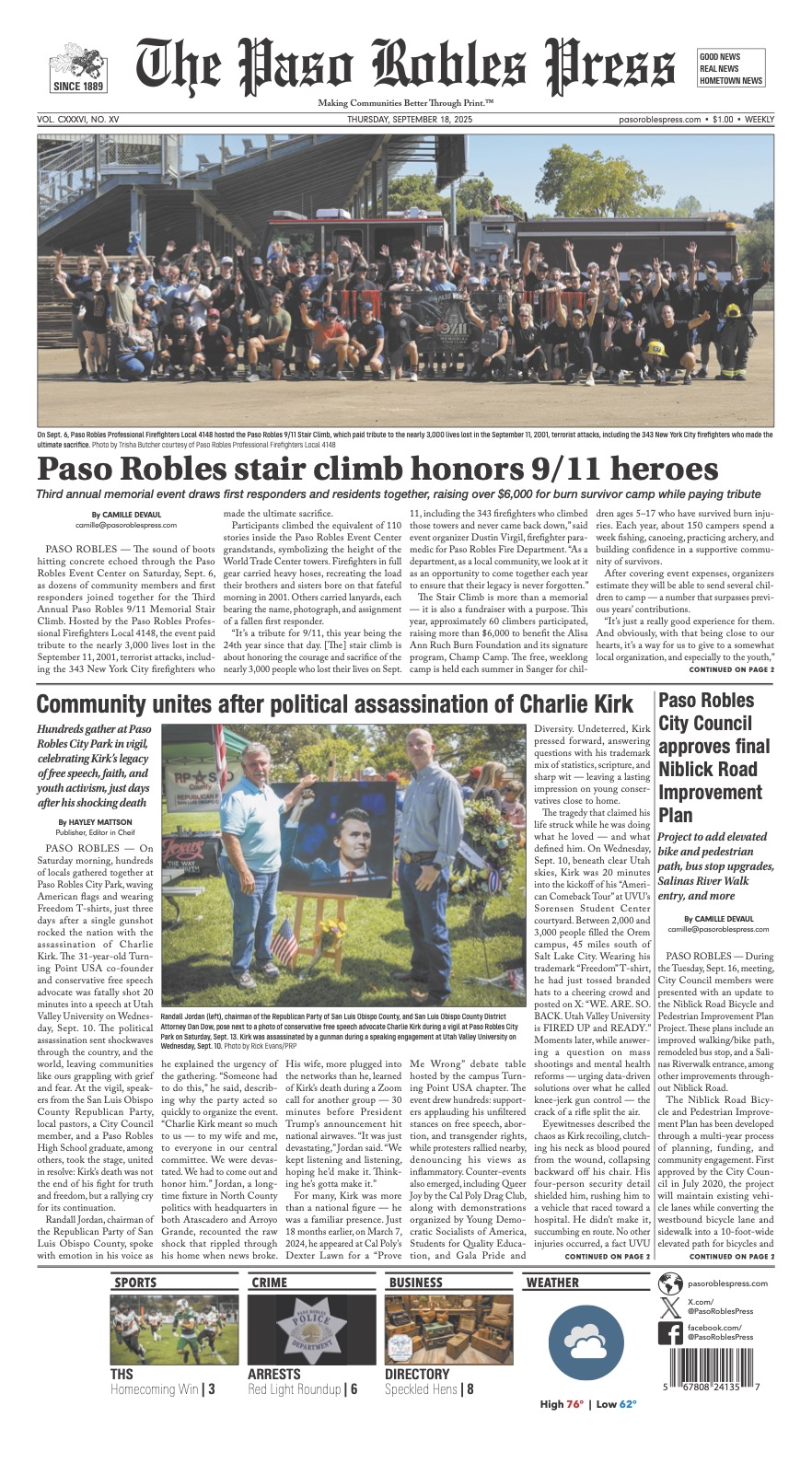Final consideration of sales tax and transient occupancy tax recommendations will be at July 21 meeting
PASO ROBLES — Paso Robles City Council continues moving toward placing a 1-cent sales tax measure and is now looking at a 1 percent transient occupancy tax increase measure on the Nov. 3 General Election.
Both will be brought back and voted on by the Council at its July 21 regular meeting. Both tax increases have to be decided by the voters. The Council is only determining if the measures will be placed on the upcoming ballot.
The Council has been considering a sales tax measure after a revenue drop due to the COVID-19 pandemic.
Adding a transient occupancy tax measure was a bit of a surprise. It is always an option but was not strongly considered until now.
After taking a break for the Fourth of July, Paso Robles City Council met on Thursday, July 9, and was streamed via YouTube.
Council motioned 5-0 to return on July 21 for focus on a 1-cent sales tax increase with an analysis and recommendation on the best use of the revenue. Paso Robles’ current sales tax rate is 7.75 percent, according to the California Department of Tax and Fee Administration.
Councilman John Hamon added a motion “to direct staff to return to Council on July 21 with an analysis and recommendation for a 1% transient occupancy tax measure to be added to the 2020 ballot.” The motion was seconded by Councilmember Steve Gregory and passed 5-0.
The City’s current TOT tax is 10 percent. The tax is imposed on occupants of hotels, inns, and other short-term lodging facilities for stays of 30 days or less. The tax is applied to a customer’s lodging bill.
Paso Robles Fire Chief Jonathan Stornetta gave a COVID-19 update for the city. Due to testing supplies running low throughout California, the state has lowered its testing criteria. For now, testing will be prioritized for only symptomatic, social workers, and care facilities.
San Luis Obispo County was officially added to the state’s watch. This could lead to rolling back reopening of some business sectors.
SLO County was put on the watch list for high disease transmission, meaning our positive case rate currently stands at 114 per 100,000 people, and the state requires no more than 100 per 100,000 people in a 14-day period.
“Do to our supply shortage locally, the county has gone back to priority testing for only high-risk individuals — patients that are hospitalized, health care workers and first responders, symptomatic individuals over 65 or those with chronic health conditions, residents living in care facilities or those with symptoms consistent with COVID-19,” reported Stornetta.
Currently, our county meets all other requirements by the state but must see a decrease in case rate to be taken off the state’s watch list.
A quick update on parklets in Downtown Paso Robles, there have only been one or two applications sent in for a parklet, as reported by a council staff member.
On May 22, the Planning Commission received an appeal from Wendy McIntire regarding six non-hosted short-term rental permits on the Market Walk property. The appeal requested the Council denies the variance because it “improperly confers special privileges in violation of the City’s Short Term Rental Ordinance.”
The Planning Commission previously and unanimously approved the short term rentals at the location during a meeting on May 12.
In 2019 the City adopted Ordinance 1082, which “authorizes non-hosted short-term rental permits for residential use in mixed-use structures,” however, the ordinance has a limit of two non-hosted permits per legal parcel.
It should be noted the site has initially been four legal parcels that merged into one to accommodate two large oak trees, which caused buildings to be set back further from the Spring Street frontage. The project was approved and under construction before Ordinance 1082 was passed.
With a 5-0 vote, the Council motioned to sustain the decision of the Planning Commission by approving six non-hosted short term rental permits to be allowed on the Market Walk property at 1803 Spring St.
The city was awarded a grant to develop the Niblick Road Complete and Sustainable Streets Plan on May 11, 2018.
The plan’s focus was to “improve safety, access, and mobility for all modes of transportation, including walking, bicycling, transit, and motor vehicles” while creating a “vibrant, pedestrian and bicycle-friendly, and green street environment for residents, businesses, and visitors.”
During the Feb. 6 meeting, staff presented three Niblick Road corridor alternatives to the Council for comment.
Council gave their input and “directed staff to bring back final recommendations for Corridor Alternative C from Creston to Spring Street, and to include Corridor Option A as a fallback Alternative if funding could not be secured for the more costly Alternative C.” Modified options for Sherwood Road, east of Creston Road, were also evaluated.
Council voted 5-0 in approval of the staff’s recommendation, including a modified design Alternative C and Option C3 for Sherwood Road. The modified Alternative C includes fewer median enhancements, provides a 10 foot wide raised path and three-foot space between traffic and the public.
Sherwood Road will maintain the existing sidewalk on the north side, maintain existing lane striping, and create a two way Class IV bike lane.














